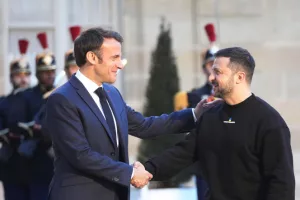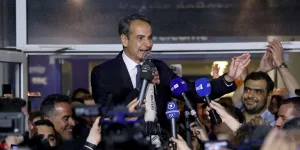Sudan is a republic in northeastern Africa between Egypt and Eritrea, bordering the Red Sea. The country often suffers from natural disasters due to extreme weather conditions such as droughts and natural hazards. In addition, Sudan is plagued with an unstable government and an economic crisis. On April 23, conflict broke out between two armed forces groups in Sudan.
General Abdel Fattah Al-Burhan is the leader of the Sudanese Armed Forces (SAF) and had been acting as head of state (at the time the conflict broke) after seizing power with a coup d’etat in October 2021. During the same time, General Al-Burhan was facing international pressure to transition into a civilian government and pave the way for democracy.
In addition to this, a paramilitary group, the Rapid Support Forces (RSF) was being pushed into the national military against their wishes. The leader of the RSF, Mohamad Hamdan “Hemedti” Dagalo, led a violent revolt against the Sudanese military and sparked a civil war to break out in the country.
Before the conflict and now
There was already a grave humanitarian crisis long before the war broke out due to substantial problems inhabiting the country. Some of these problems included violence, the displacement of people, and decades of conflict. As part of the humanitarian crisis, there are 15 million people experiencing severe food insecurity and 3.7 million displaced people. Consequently, the sum of the humanitarian crisis and the conflict led to further displacement and worsened conditions in the region. According to BBC News, the economy has broken down, hospitals have had to close their doors since there is no power, and the situation is set to become even worse.
The conflict is mainly focused in Khartoum, the capital of Sudan, where infrastructure is being destroyed on a daily basis. The Council of Foreign Relations released a report explaining that “air strikes and shelling have hit hospitals, prisons, and other facilities in dense residential areas.” Health authorities have also warned of a biohazard risk after one of the opposing sides seized control of a lab with various samples of diseases like cholera.
Furthermore, there are millions without access to water and the costs of fuel, energy, and food prices continue to rise. The Council of Foreign Relations has stated that the crisis is predicted to affect 19 million people in the upcoming six months. Many countries have gotten involved in trying to mediate and get the opposing sides to reach a ceasefire. Despite the many attempts, Sudan continues to be a war zone where the possibility of getting humanitarian aid in the country continues to decrease.
International aid to Sudan
There have been UN Country Team (UNCT) operating in Sudan for the last 10 years, but with the conflict, their ability to carry out their functions and assistance has been significantly impeded.
For instance, the World Food Program had to halt its operations for two weeks since three of its workers were killed. Other organizations’ facilities have been robbed, such as those of UNICEF and World Vision International.
Sudanese residents have sought refuge in the neighboring countries, however, some of these countries, such as Egypt and South Sudan, already have internal conflicts of their own. Chad closed its borders, while the Central African Republic has requested more aid to help deal with its internal conflicts and assist the people of Sudan. There have also been severe human rights abuse allegations.
International intervention in the conflict
It is important to mention that Egypt is the country that has received the most refugees and has been said to have close ties to SAF. Meanwhile, the RSF has received support from Russian mercenaries through Libyan warlord Khalifa Haftar.
Civilians continue to flee Sudan, terrorized by the conflict in their country and the lack of resources needed to survive. Even though there seems to be no break to the fighting, countries such as the United Kingdom, the United States, and Saudi Arabia are trying to mediate and establish diplomatic means to end the war.
Featured image by: AFP






